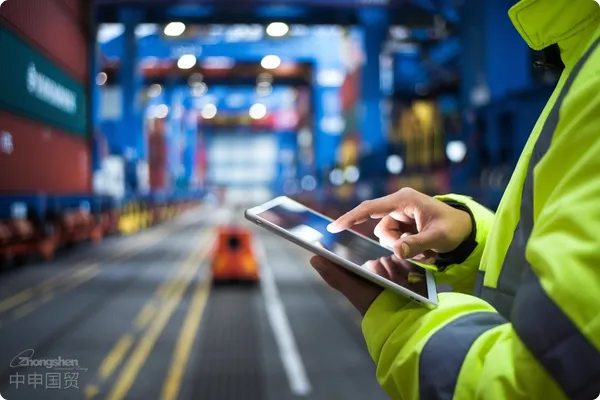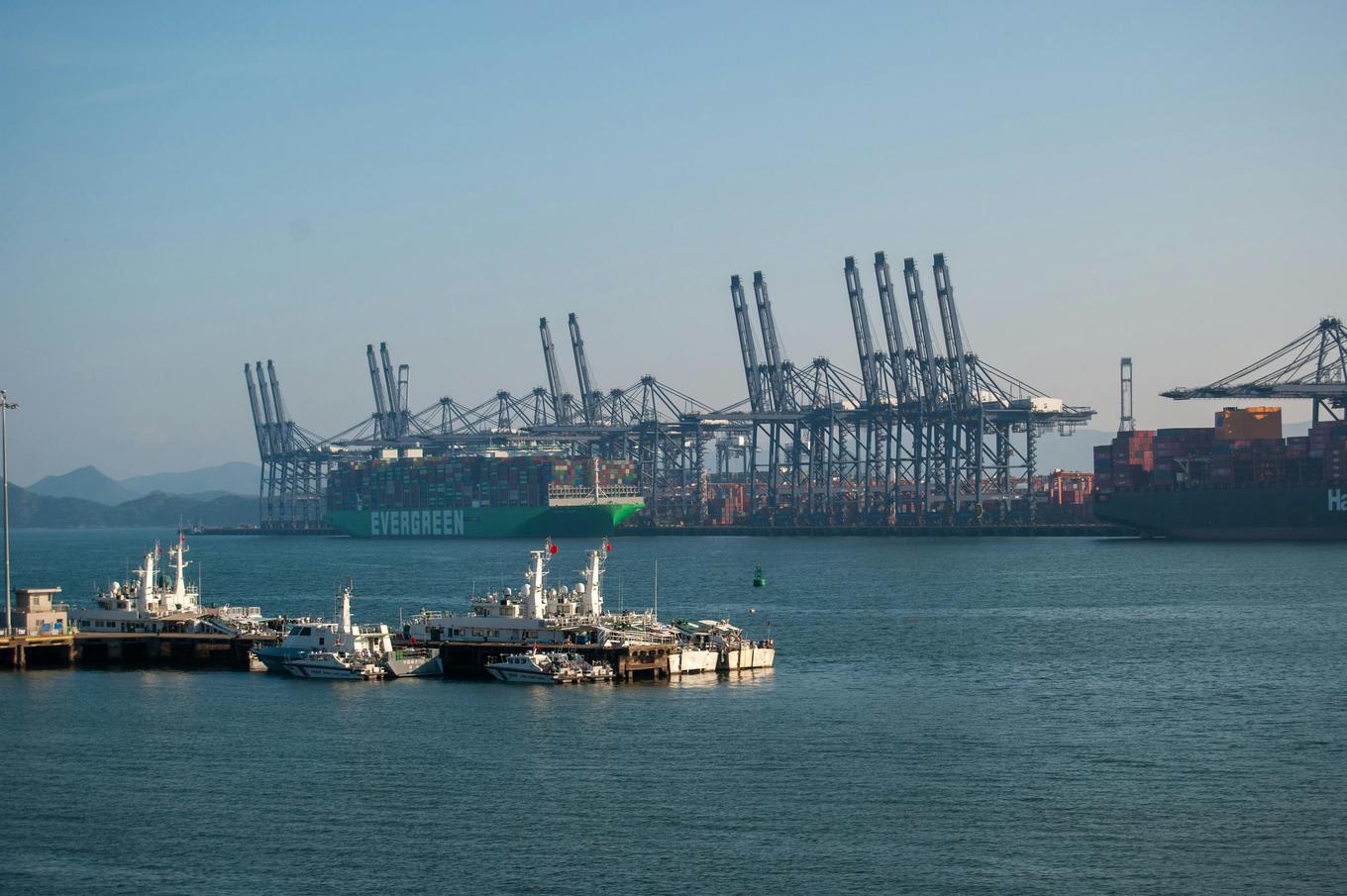- Shanghai Zhongshen International Trade Co., Ltd. - Two decades of trade agency expertise.
- Service Hotline: 139 1787 2118

Introduction
In todays interconnected global manufacturing landscape, importing high-quality gears from Japan is crucial for many enterprises to enhance product quality and competitiveness. However, importing gears involves complexforeign tradeprocesses, requiring the assistance of professional foreign trade agency services. This article will provide a comprehensive analysis of the key aspects of importing gears from Japan.
Challenges and opportunities in the international trade situation
The current international trade situation is complex and ever-changing, with trade protectionism occasionally rising and frequent tariff adjustments. For example, some countries may raise import tariffs on mechanical parts like gears to protect their domestic manufacturing industries. This undoubtedly increases import costs and challenges corporate profit margins. At the same time, the global logistics supply chain has experienced freight fluctuations and extended transportation times due to factors like the pandemic. However, opportunities also exist; as economies worldwide gradually recover, the demand for high-quality gears continues to grow. Especially with the rise of emerging industries such asNew energyautomotive and high-end equipment manufacturing, Japan, as a strong nation in precision machinery manufacturing, produces gears with clear advantages in technology and quality. Importing Japanese gears can meet the upgrading needs of relevant domestic industries.
ZhongShen International TradeProfessional documentation handling capabilities
When importing gears, document processing is crucial. Zhong Shen Guomao has extensive experience in this area. From basic documents like commercial invoices, bills of lading, to packing lists, we ensure accuracy. Commercial invoices must detail information such as gear specifications, models, quantities, unit prices, and total prices, as this is not only an important basis for customs taxation but also a key settlement voucher for both buyer and seller. As a document of title for goods, we strictly review the content of bills of lading to ensure the safety and traceability of cargo transportation. Packing lists meticulously record the specific details of gears within each package, facilitating customs inspection and consignees inventory.
In handling special documents, such asIt is recommended to verify through the following methods:certificates, if imported gears comply with relevant free trade agreement preferential policies, tariff reductions can be enjoyed with a valid certificate of origin. We assist enterprises in accurately obtaining this certificate to ensure they fully benefit from policy dividends. For gear products involving intellectual property, relevant authorization documents and other certificates may also be required. We guide enterprises in preparing these properly to avoid cargo detention or legal risks due to document issues.
Professional logistics arrangement control
When importing gears from Japan, the choice of logistics method requires comprehensive consideration of cost, timeliness, and cargo characteristics.Maritime Transportationis a common method, suitable for large-volume gear transportation, with relatively lower costs. We will book shipping space in advance based on the estimated arrival time of the goods and select reputable shipping companies. Before loading, we ensure that the cargo packaging meets sea freight requirements and that measures such as moisture-proofing and shock-proofing are in place. For example, high-precision gears may require custom wooden packaging and protective items like desiccants.
If an enterprise has high requirements for timeliness,Air Transportationis also an option. We maintain close cooperation with major airlines and can quickly arrange cargo transportation. However, it should be noted that air freight has strict regulations on cargo packaging, weight, and dimensions, and we will assist enterprises in making the necessary adjustments. During the transportation process, we utilize modern logistics tracking systems to monitor cargo movements in real-time and provide timely feedback to clients, ensuring they are fully informed about the status of their shipments.
Southeast Asian Marketimport and exportProcess and Solutions (Taking Japanese Gear Imports as an Example)
Pre - preparation
When importing Japanese gears into the Southeast Asian market, the first step is to clarify procurement needs and sign a detailed purchase contract with the Japanese supplier. The contract must specify key details such as gear technical parameters, quality standards, pricing terms, and delivery times. At the same time, it is important to understand local trade regulations and policies in Southeast Asia; for example, some countries may set import quotas or special certification requirements for specific types of gears.
Customs clearance phase
After the goods arrive at the destination port in Southeast Asia, customs clearance is a crucial step. We will prepare a complete set of customs clearance documents in advance, including commercial invoices, bills of lading, packing lists, certificates of origin, etc. During the customs clearance process, customs inspections may occur. To improve inspection efficiency, we ensure that the actual condition of the goods matches the document descriptions. If special regulatory requirements are involved, such as strict environmental standards for gears in some countries, we will assist enterprises in preparing relevant supporting documents in advance to ensure smooth passage through inspection. For taxes and fees incurred during customs clearance, we will accurately calculate them according to local customs regulations to avoid unnecessary losses for the enterprise.
Logistics Distribution
After customs clearance is completed, the gears are then delivered to the clients designated location. In Southeast Asia, road transport is more flexible and suitable for short-distance distribution; rail transport is suitable for long-distance transportation of large volumes of goods. We will select the appropriate delivery method based on client needs and the actual situation of the goods, and coordinate all matters during the transportation process to ensure safe and timely delivery of the goods.
VTB for the Russian MarketFX Settlement AgencyAdvantages and settlement processes
For businesses involving importing gears from Japan and then selling them to the Russian market, Zhong Shen Guomao offers the unique convenience of VTB foreign exchange settlement. VTB Bank is a major financial institution in Russia, and we have established a good cooperative relationship with them. Regarding the settlement process, once the goods are delivered and relevant documents are handed over, the Russian client will pay us through VTB Bank. We will first verify that the payment amount matches the contract agreement, and then submit relevant foreign exchange settlement application documents as required by the bank, such as commercial invoices and bill of lading copies, to prove the authenticity of the trade. After VTB Banks approval, the foreign exchange will be settled into RMB or other agreed currency at the prevailing exchange rate and paid to the enterprise. This method is not only convenient but also offers certain advantages in exchange rate risk management, helping enterprises reduce settlement costs and risks.
Product certification assistance
When importing Japanese gears, different markets may have different certification requirements. In Southeast Asia, some countries may require gears to comply with local industrial standard certifications, such as Indonesias SNI certification. In Russia, GOST certification might be required. While Zhong Shen Guomao does not directly handle certification services, we leverage our extensive experience to inform clients about the required certification types, assist them in preparing relevant materials, communicate with certification bodies, and guide clients through the certification process. For example, we help clients organize necessary technical documents, product test reports, etc., to improve certification efficiency and ensure gears successfully enter the target market.
Conclusion
When importing gears from Japan, choosing a professional foreign trade agent is crucial given the complex international trade situation. Zhong Shen Guomao, with its professional capabilities in document processing, logistics arrangements, and unique advantages for different markets, can provide enterprises with comprehensive, one-stop import services, helping them seize opportunities in global market competition.
Related Recommendations
? 2025. All Rights Reserved. Shanghai ICP No. 2023007705-2  PSB Record: Shanghai No.31011502009912
PSB Record: Shanghai No.31011502009912










